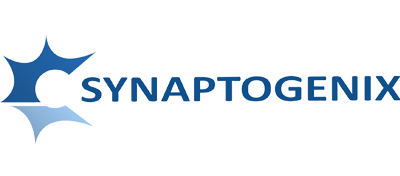Neurotrope to Present Additional Phase 2 Data at the Alzheimer’s Association International Conference (AAIC) 2018 Meeting
NEW YORK, July 2, 2018 /PRNewswire/ — Neurotrope Inc. (NASDAQ: NTRP) a clinical-stage biopharmaceutical company developing novel therapies for neurodegenerative diseases, including Alzheimer’s disease (AD), is announcing the acceptance of a presentation at the Alzheimer’s Association International Conference 2018 (AAIC) being held in Chicago, from July 22-26, 2018.
|
Title |
Significant Cognitive Improvement with Bryostatin for Advanced Alzheimer’s |
|
Patients in the Absence of Memantine (Poster presentation Abstract #27295) |
|
|
Developing Topics Session: |
P4-199: |
|
Date/Time |
Wednesday, July 25, 2018: 9:30 AM-4:15 PM |
|
Location Hall |
F1 – McCormick Place |
“The primary mechanisms of action (MOAs) of bryostatin, Neurotrope’s lead compound to treat Alzheimer’s disease (AD) neurodegeneration, are synaptogenesis and anti-apoptosis: the generation of new, mature synaptic connections and the prevention of neuronal death. This has been demonstrated in pre-clinical models because our target PKC epsilon activates synaptic growth factors like BDNF, NGF and IGF-1. Our most recent comprehensive data analyses, to be reported at AAIC 2018, have demonstrated that advanced AD patients show improvement (> 6.0 points vs. placebo and baseline) in the Severe Impairment Battery (SIB) even 30 days after all drug dosing has been completed in patients not on memantine. The data indicate that PKC’s synaptogenesis efficacy cannot occur when the NMDA receptor is blocked. Data from many other laboratories over the years implicating NMDA in memory processing could now take on new meaning from Neurotrope’s clinical results with bryostatin – in the absence of memantine. We are excited to be presenting this new data at this prestigious international forum” stated Dr. Daniel Alkon, President and Chief Scientific Officer of Neurotrope.
About Neurotrope
Neurotrope is at the forefront of developing a new approach to combating AD and other neurodegenerative diseases. The Company’s world-class science offers the potential to realize a paradigm shift to overcome one of today’s most challenging clinical problems — finding a way to slow or even prevent the progression of AD.
In addition to the Company’s Phase 2 trial of Bryostatin-1 in advanced AD, Neurotrope has also conducted preclinical studies of bryostatin as a potential treatment for Stroke, Traumatic Brain Injury, and Fragile X Syndrome, Niemann-Pick Type C disease and Rett Syndrome—rare genetic diseases for which only symptomatic treatments are currently available. The FDA has granted Orphan Drug Designation to Neurotrope for Bryostatin-1 as a treatment for Fragile X Syndrome. Bryostatin-1 has already undergone testing in more than 1,500 people in cancer studies, thus creating a large safety data base that will further inform clinical trial designs in AD.
Please visit www.neurotrope.com for further information.
Forward-Looking Statements
Any statements contained in this press release that do not describe historical facts may constitute forward-looking statements. These forward-looking statements include statements regarding the Phase 2 study and further studies, and continued development of use of Bryostatin-1 for Alzheimer’s dementia and other cognitive diseases. Such forward-looking statements are subject to risks and uncertainties and other influences, many of which the Company has no control over. These statements are subject to the risk that further analyses of the Phase 2 data may lead to different interpretations of the data than the analyses conducted to date and/or may identify important implications of the Phase 2 data that are not reflected in these statements. Clinical trial data are subject to differing interpretations, and regulatory agencies, medical and scientific experts and others may not share the Company’s views of the Phase 2 data. There can be no assurance that the clinical program for Bryostatin-1 will be successful in demonstrating safety and/or efficacy that we will not encounter problems or delays in clinical development, or that Bryostatin-1 will ever receive regulatory approval or be successfully commercialized. Actual results and the timing of certain events and circumstances may differ materially from those described by the forward-looking statements as a result of these risks and uncertainties. Additional factors that may influence or cause actual results to differ materially from expected or desired results may include, without limitation, the Company’s inability to obtain adequate financing, the significant length of time associated with drug development and related insufficient cash flows and resulting illiquidity, the Company’s patent portfolio, the Company’s inability to expand the Company’s business, significant government regulation of pharmaceuticals and the healthcare industry, lack of product diversification, availability of the Company’s raw materials, existing or increased competition, stock volatility and illiquidity, and the Company’s failure to implement the Company’s business plans or strategies. These and other factors are identified and described in more detail in the Company’s filings with the SEC, including the Company’s Annual Report on Form 10-K for the year ended December 31, 2017, and on Form 10-Q for the quarter ending March 31, 2018. The Company does not undertake to update these forward-looking statements.
Contact information:
Investors and Media
Jeffrey Benison, Director of Corporate Communications
Neurotrope, Inc.
516.286.6099 (C) or 212.334.8709 (O)
jbenison@neurotrope.com
SOURCE Neurotrope, Inc.








